Q1. When do the INS regulations regarding National Interest Waivers (NIWs) for physicians become effective? Is it possible to submit comments to the INS if I disagree with their interpretation of the 1999 law?
A1. The regulations, which were published in the Federal Register on September 6, 2000, become effective on October 6, 2000. Written comments must be submitted on or before November 6, 2000, in triplicate, to the Director, Policy Directives and Instructions Branch, Immigration and Naturalization Service, 425 I Street, NW, Room 5307, Washington, DC, 20536. To ensure proper handling, please reference the INS number 2048-00 on your correspondence.
Client Reviews

Legal Guru in All Things Immigration
“Mr. Shusterman and his law firm have represented my family and me very successfully. He is not only a legal guru in all things immigration but even more so he is an exceptional human being because he empathizes with his clients and cares that justice is done.”
- Maria Davari Knapp, Chicago, Illinois
Read More Reviews
Zoom Consultations Available!
Q2. The INS regulations restrict the ability to obtain a National Interest Waiver (NIW) for physicians employed in medically underserved areas solely to primary care physicians. I am a specialist. What advise do you have for me?
A2.The INS interim regulations restrict the ability of specialists who are not employed by the VA to obtain NIW’s. While I disagree with INS’s interpretation, in order to insure that you will become a permanent resident, I suggest that you have your employer submit an Application for an Alien Labor Certification on your behalf. You may also wish to self-petition for a National Interest Waiver since the current INS regulations are “interim” only, and may change in their “final” version.
Q3. What government agencies may provide letters that a physician’s employment is in the public interest?
A3. The language of the law which seems to indicate that the range of government agencies here is far greater than those which can sponsor a physician for a J waiver. Any federal agency can write a “public interest” letter for a physician. In addition, a state department of public health may also write such a letter. Finally, the law provides that “a department of public health in any state” may write such a letter. Unfortunately, the INS regulations state that only a State Department of Health may write such a letter, not a city, county or regional health department.
Q4. May I change employment from one underserved area to another during the five years that I am required to work in a HPSA/MUA?
A4. Yes. However, under the interim regulations, you are required to submit a new NIW petition to the INS each time you relocate to a new HPSA/MUA.
Q5. Must the five years that I am required to work in an underserved area run consecutively?
A5. No. The law states that the five years may be “in the aggregate”. Therefore, if you work in an underserved area for three years, do a one-year fellowship, and then work in the same or another underserved area for two years, you are still eligible for permanent residence.
Q6. How long do I have to fulfill the five-year requirement?
A6. While the law does not impose any time limit, the interim regulations state that you must complete the five-year requirement within six years after your NIW petition is approved. Although the regulations state that “the Service realizes that situations will arise that cause some physicians to have interruptions in their respective medical practice, such as job loss through no fault of their own and the ensuing search for new employment in an underserved area, pregnancy, or providing care to ill parents, children or other family members”, they permit no exceptions to the six-year requirement.
If you were born in a country where there is no backlog in the Employment-Based Second (EB-2) Preference Category, your best insurance against violating the six-year rule may be to delay submission of your NIW petition for a year or two after you begin employment if you have enough years left before your six-year limit on H-1B status expires. However, if you were born in either of the countries where there is a backlog in the EB-2 category (India or mainland China), you may decide that it would be unwise to delay the filing of your NIW petition since it is important that your priority date be reached before the sixth year of your H-1B status expires. Consult your attorney!
Q7. After my NIW petition is approved, when is the earliest time that I can submit my application for adjustment of status to the INS?
A7. You (and your spouse and your unmarried children who are under 21 years of age) may apply for adjustment of status and for Employment Authorization Documents (EADs) and “advance paroles” as soon as the INS approves your NIW petition assuming that your priority date is current.
Q8. Once my NIW petition is approved, how does the INS monitor whether I am continuing to work in primary care in a medically underserved area?
A8. The interim regulations require you to submit evidence of one year’s employment as a primary care physician at the VA or in a medically underserved area. This evidence must be submitted during the 120 days immediately following the two-year period after the NIW was approved. If you fail to satisfy this requirement, your NIW may be revoked by the INS. After you complete your fifth year of service, you are again required to submit documentation of this fact to the INS. The INS will schedule you to be fingerprinted, request a medical examination report, and when both are complete, adjudicate your application for adjustment of status.
Q9. What if the underserved area where I work losses its government designation prior to the end of my five-year tenure? Do I have to relocate?
A9. No, here the interim regulations are more flexible. You may continue to work in the area despite the loss of its designated status.
Q10. What if I submitted an NIW petition prior to November 12, 1999 which was later denied? Can I move to reopen the denial of the NIW in light of the new law?
A10. According to the interim regulations, you can not move to reopen your denial since the NIW petition was not approvable according to the law which existed when the petition was filed.
However, if your NIW denial is still on appeal or in litigation, INS will support that the petition be remanded to the appropriate service center for a new decision.
If your NIW petition is still pending at the service center, you will be allowed to submit additional evidence to support the granting of the petition.
Decades of Immigration Experience Working for You
What Can We Help You With - Videos
Carl Shusterman
Immigration Attorney Carl Shusterman has 40+ years of experience. He served as an attorney for the U.S. Immigration and Naturalization Service (INS) from 1976 until 1982, when he entered private practice. He has testified as an expert witness before the US Senate Immigration Subcommittee. Carl was featured in SuperLawyers Magazine. Today, he serves as Of Counsel to JR Immigration Law Firm.







